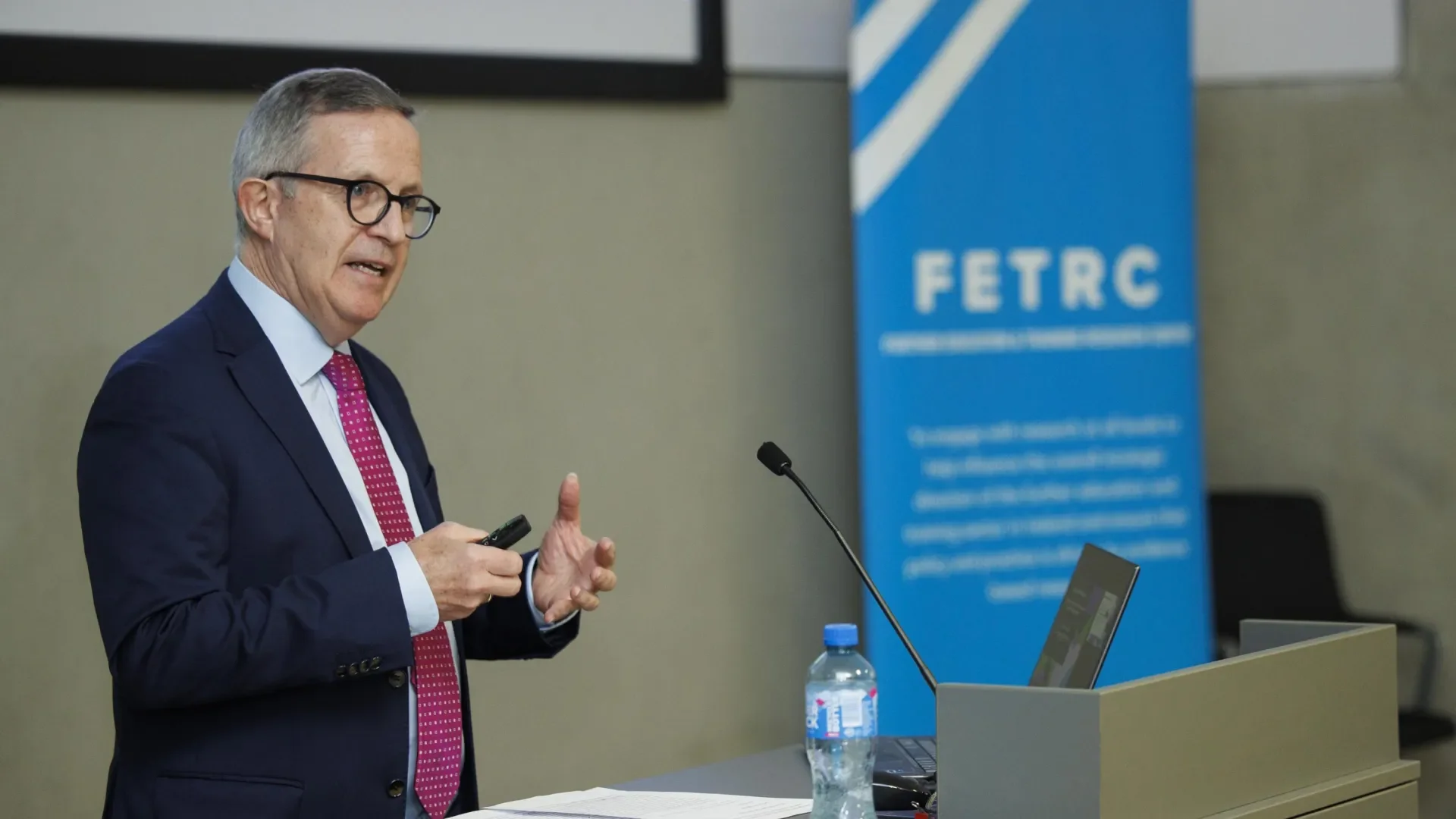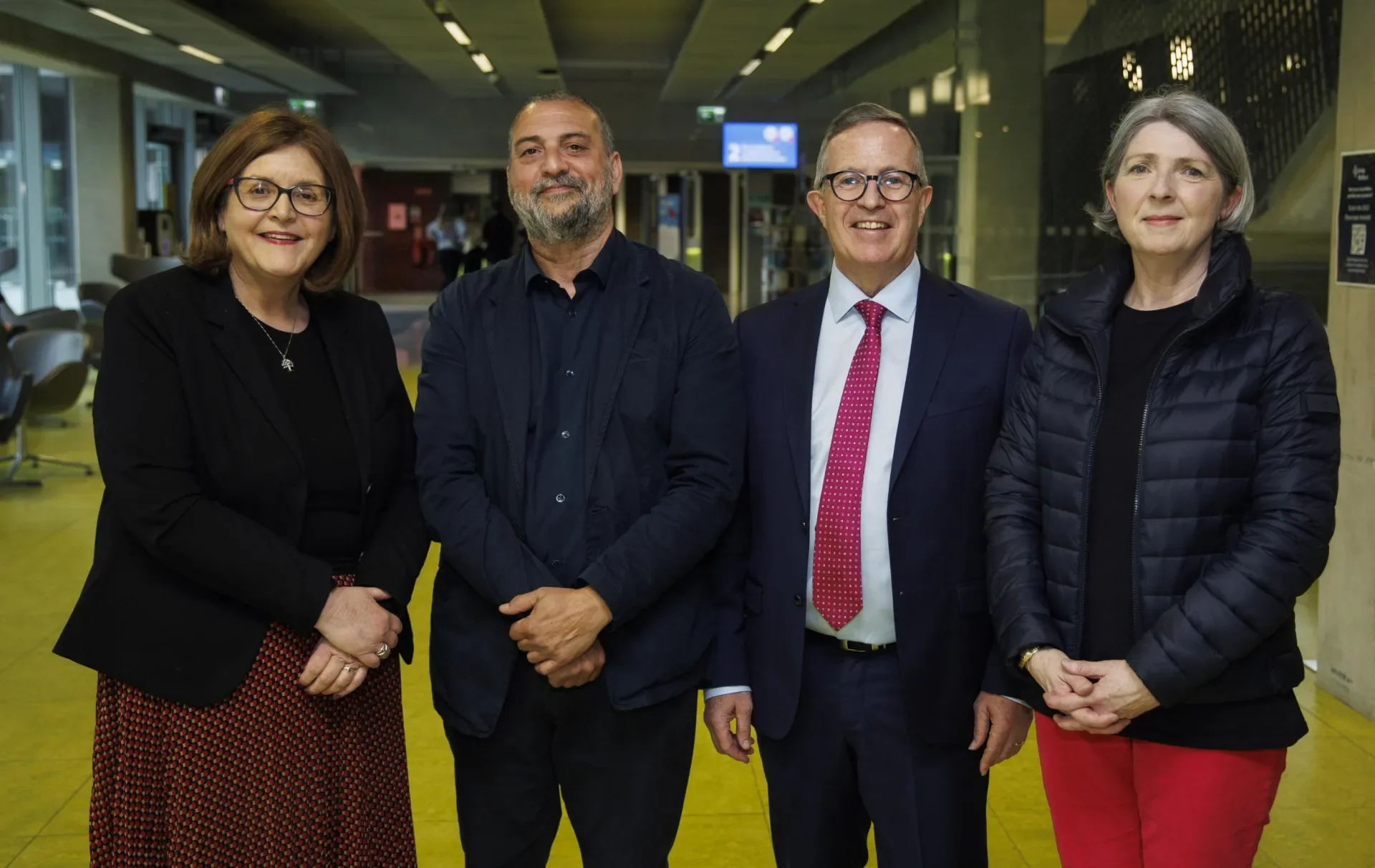

FETRC Seminar - Rethinking Employer Involvement in Skills Development
The DCU Further Education and Training Research Centre (FETRC) opened its 2025 Seminar Series on Monday, 14th April, with a seminar from Adjunct Professor Rory O’Sullivan, entitled 'From employer engagement to employer involvement in skills development - towards a sustainable model of governance'. The seminar focused on the future of employer involvement in Further Education and Training (FET).
Held at the Seamus Heaney Theatre on DCUs St Patricks campus, the seminar brought together staff from across multiple DCU faculties, as well as national stakeholders from the FET and skills sectors. Hosted by FETRC, a University Designated Research Centre based within the Institute of Education, the event provided a timely and thought-provoking space for policy-informed discussion on inclusive skills development, education–employer partnerships, and localised innovation.
Opening the evening, Dr Justin Rami, Director of FETRC, welcomed guests and situated the event within the centre’s mission to influence policy, deepen practice, and expand dialogue across the FET sector. He reflected on the growing importance of employer–education collaboration and noted the central role DCU can play in shaping sustainable approaches to tertiary partnership.
Adjunct Professor O’Sullivan, who has held leadership roles across the FET sector and national policy bodies, challenged the audience to critically re-examine how employers are currently engaged in the design and delivery of skills programmes. He called for the development of new models that enable high-quality, accountable participation by employers in education and training, grounded in local needs and built on reciprocal relationships with FET providers.
Two of the standout points from O’Sullivan’s lecture that are likely to resonate strongly with policymakers and researchers were:
- The need to move beyond traditional employer engagement models toward co-designed and governed partnerships between education providers and industry, where employers take a structured and proactive role in delivering skills programmes.
- The importance of developing frameworks that balance learner outcomes with employer capacity and sectoral priorities, ensuring quality, equity, and mutual benefit across all actors.
His presentation was grounded in data from national and international sources. For example, he cited that only 28% of employers currently offer structured placements to FET learners, while over 60% of Education and Training Boards (ETBs) identify employer involvement as a ‘critical challenge’ in programme development. Comparative case studies from other European countries were also used to highlight more embedded, effective employer engagement practices.
In her remarks, Professor Anne Looney, Executive Dean of DCU’s Institute of Education, underscored the university’s deepening engagement with the FET sector. She referenced the Stronger Connections initiative (2022–2024), which created new pathways from FET to DCU undergraduate programmes and influenced DCU’s current strategic plan by embedding FET collaboration across faculties.
The seminar concluded with a lively Q&A and a networking reception. This seminar marks the first in FETRC’s 2025 Lecture Series, which seeks to foster critical, evidence-informed conversations on system change across Further and Higher Education. Future sessions will explore themes such as apprenticeships and inclusive employment pathways.

